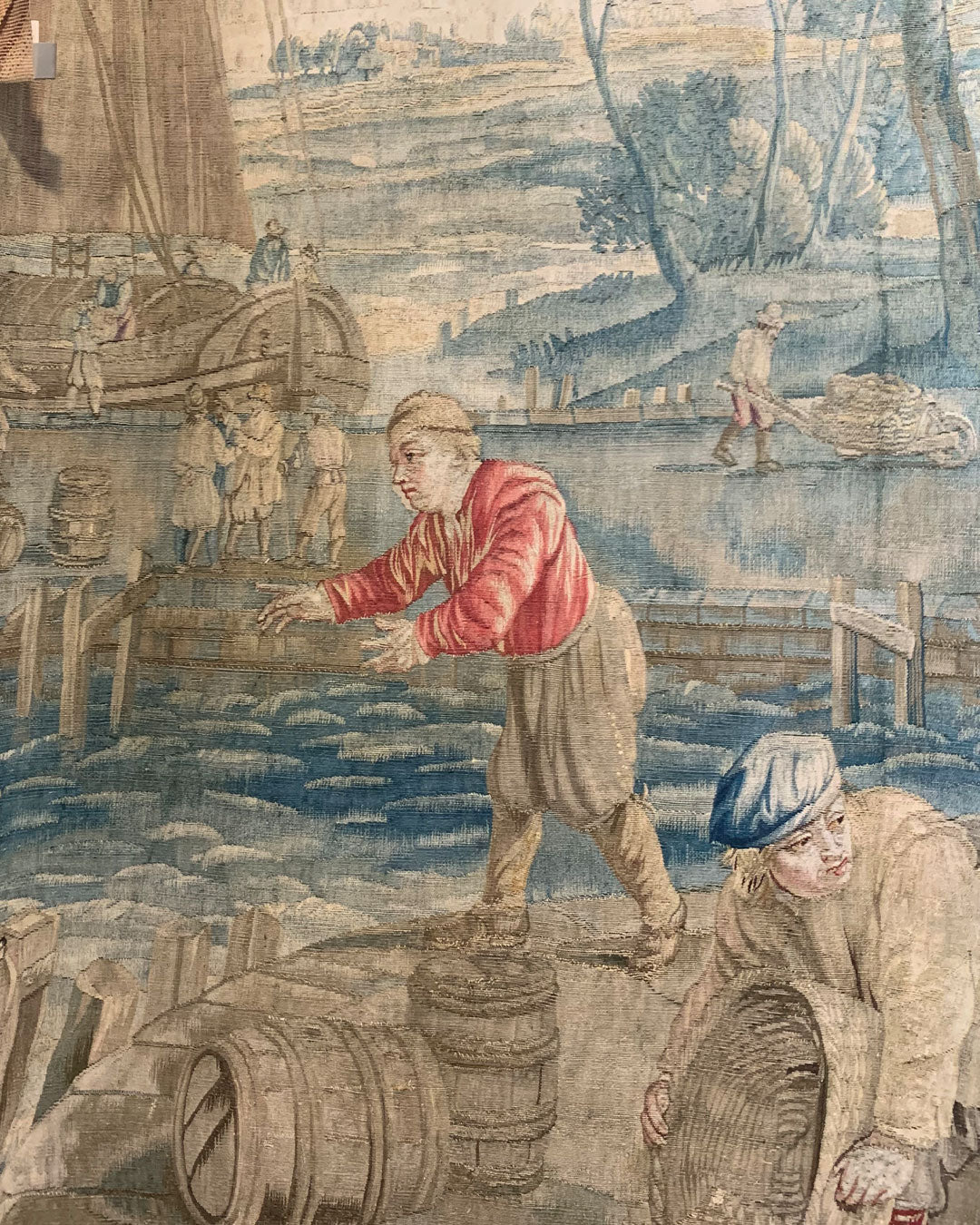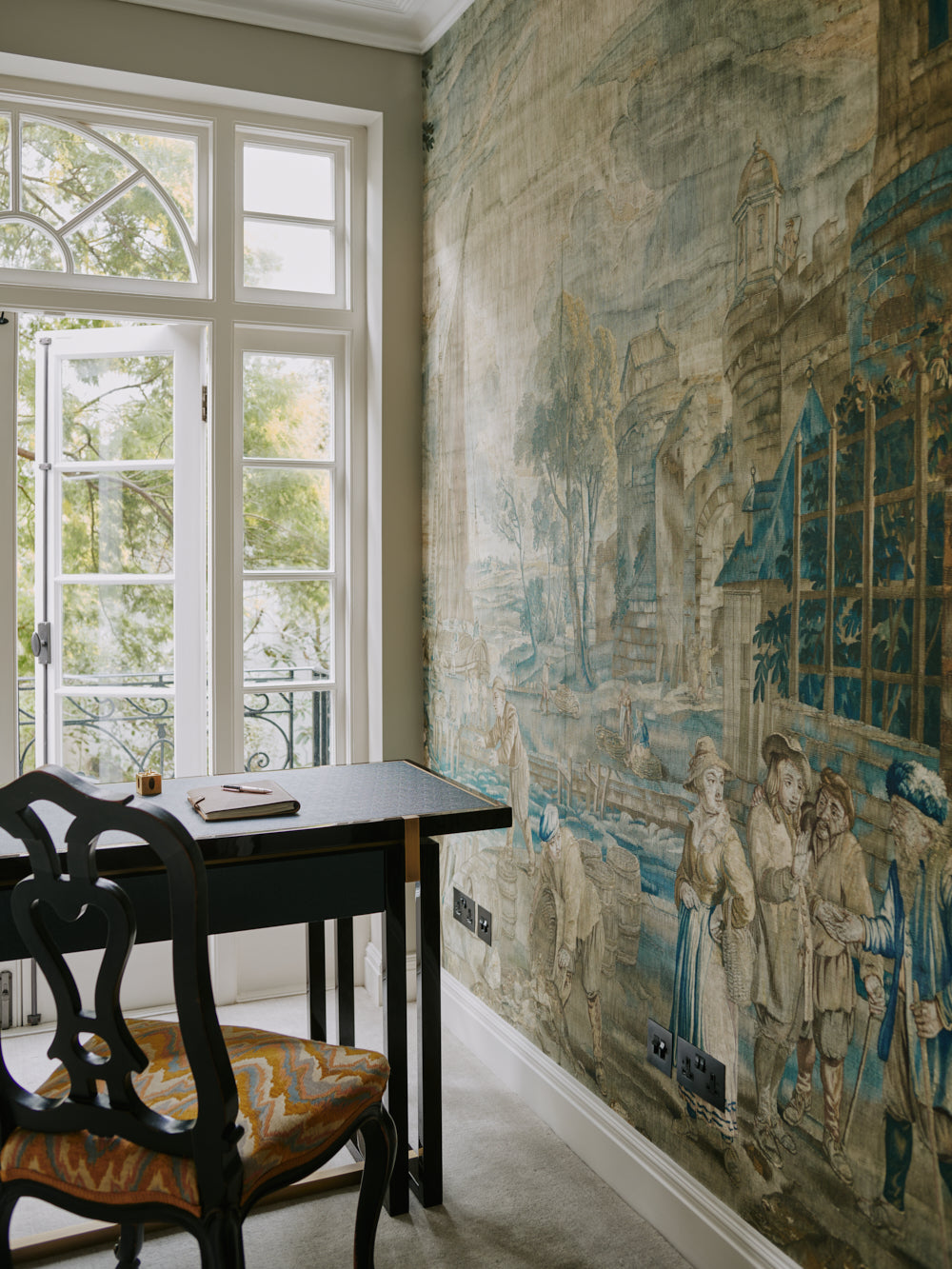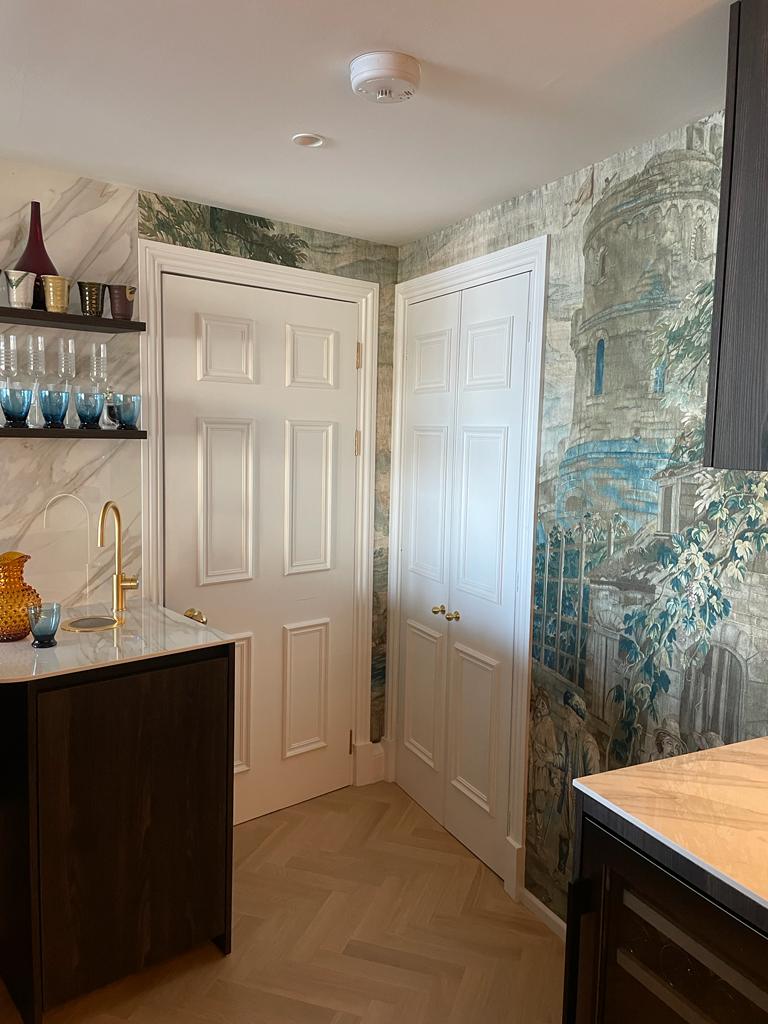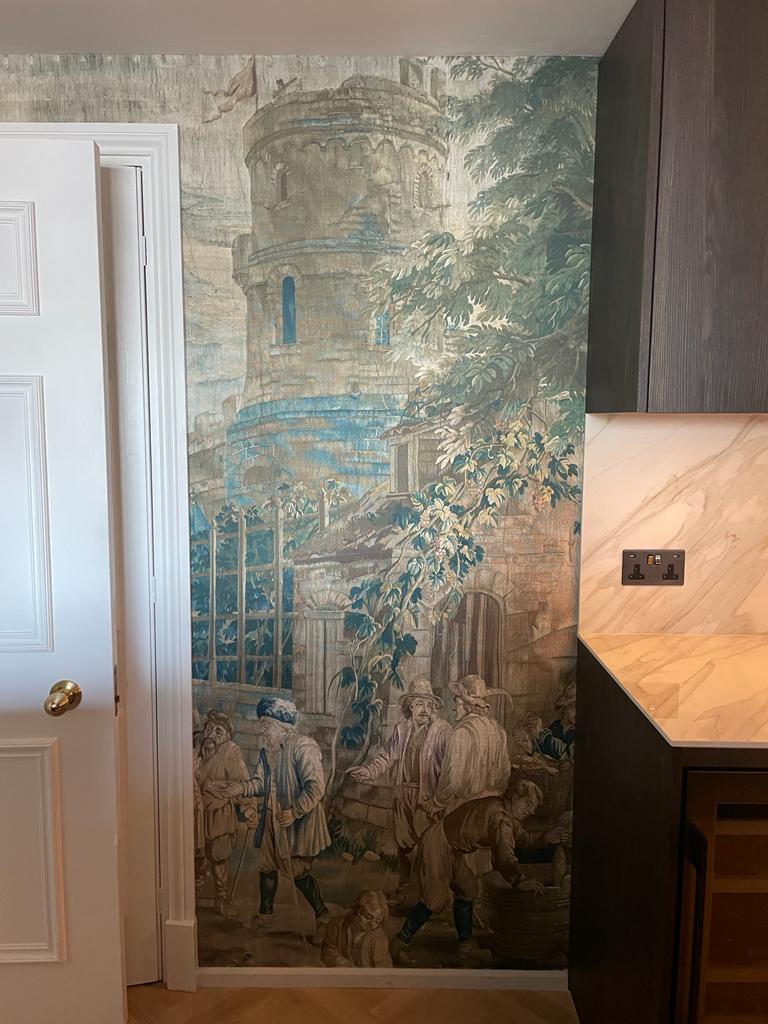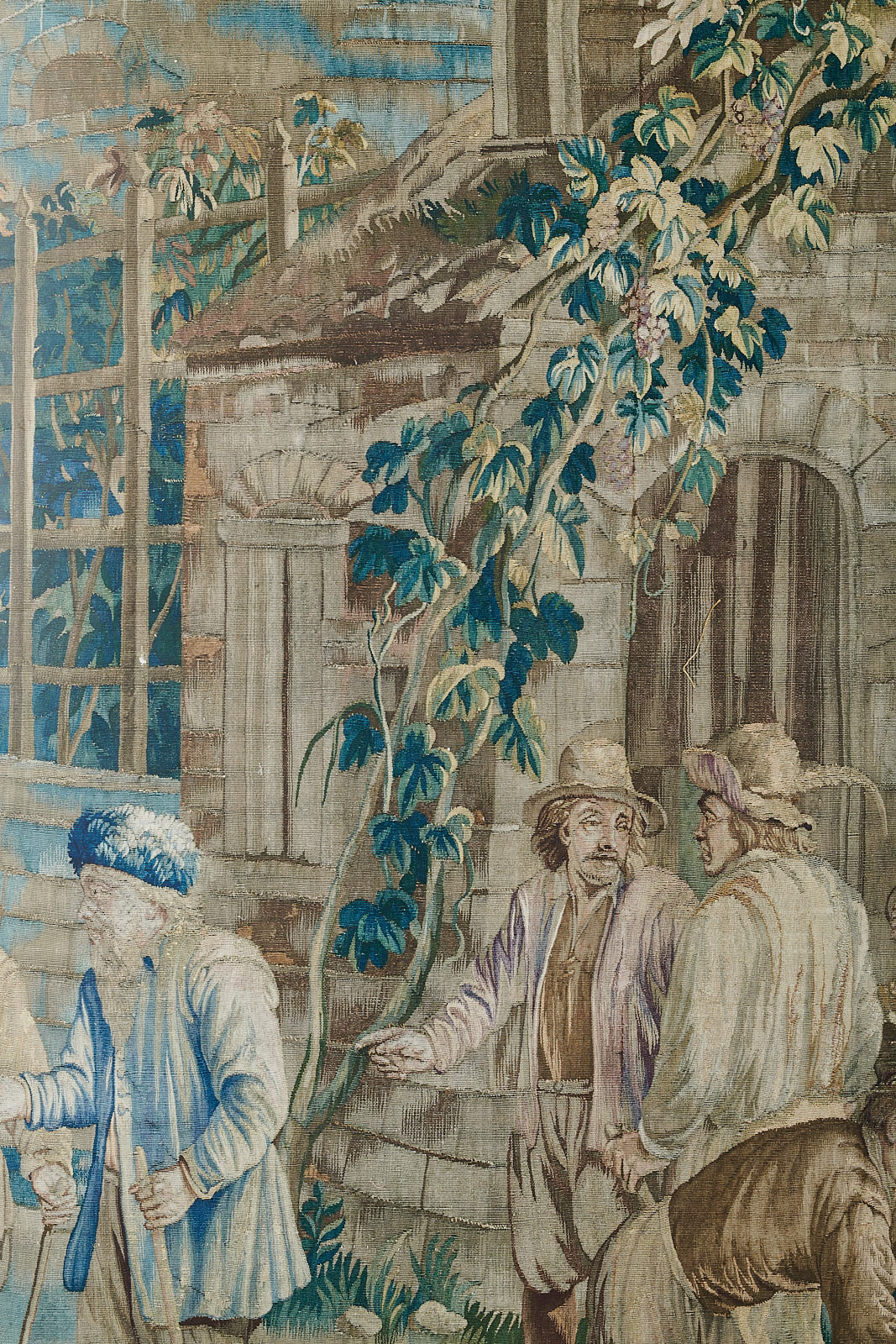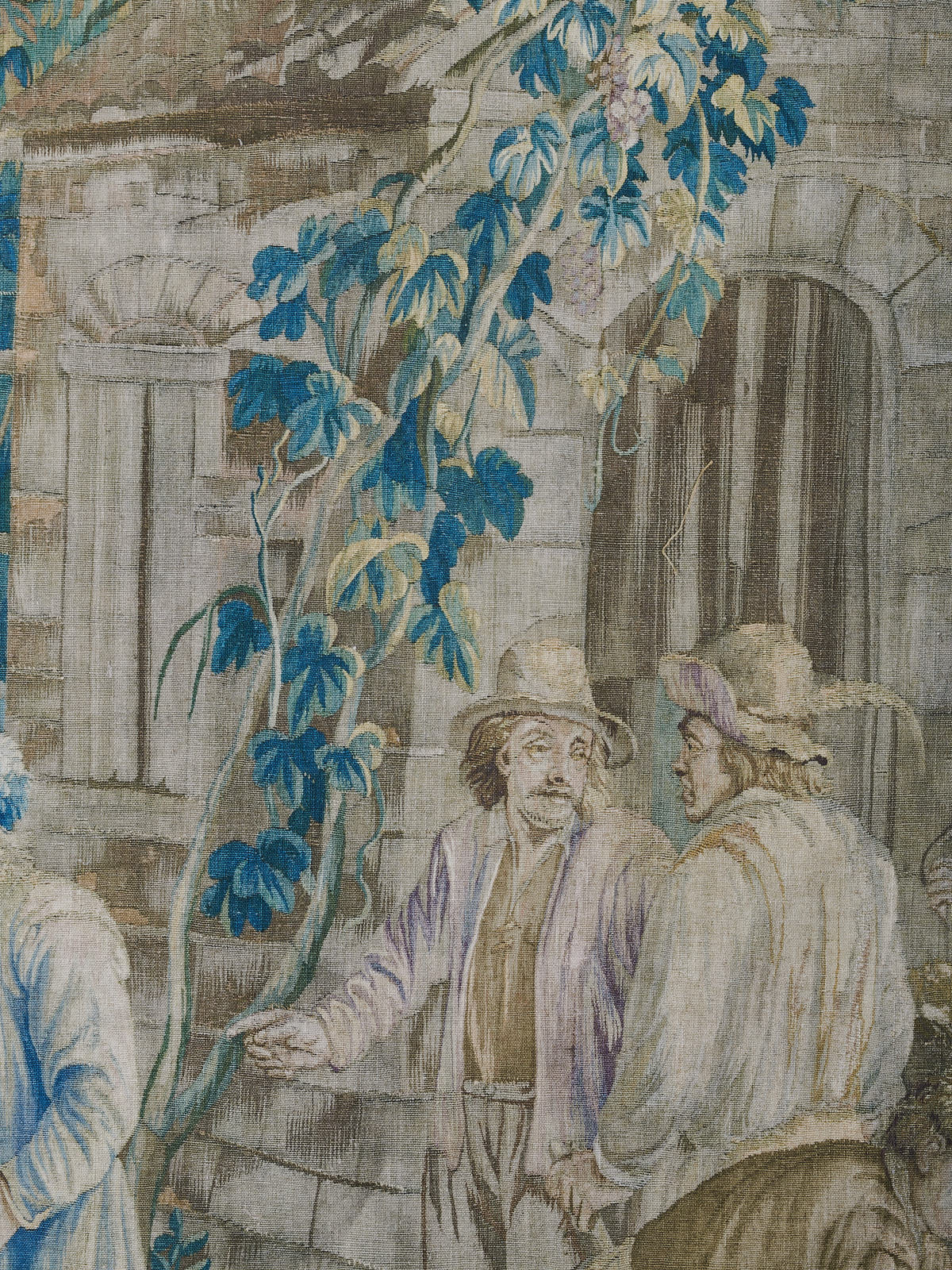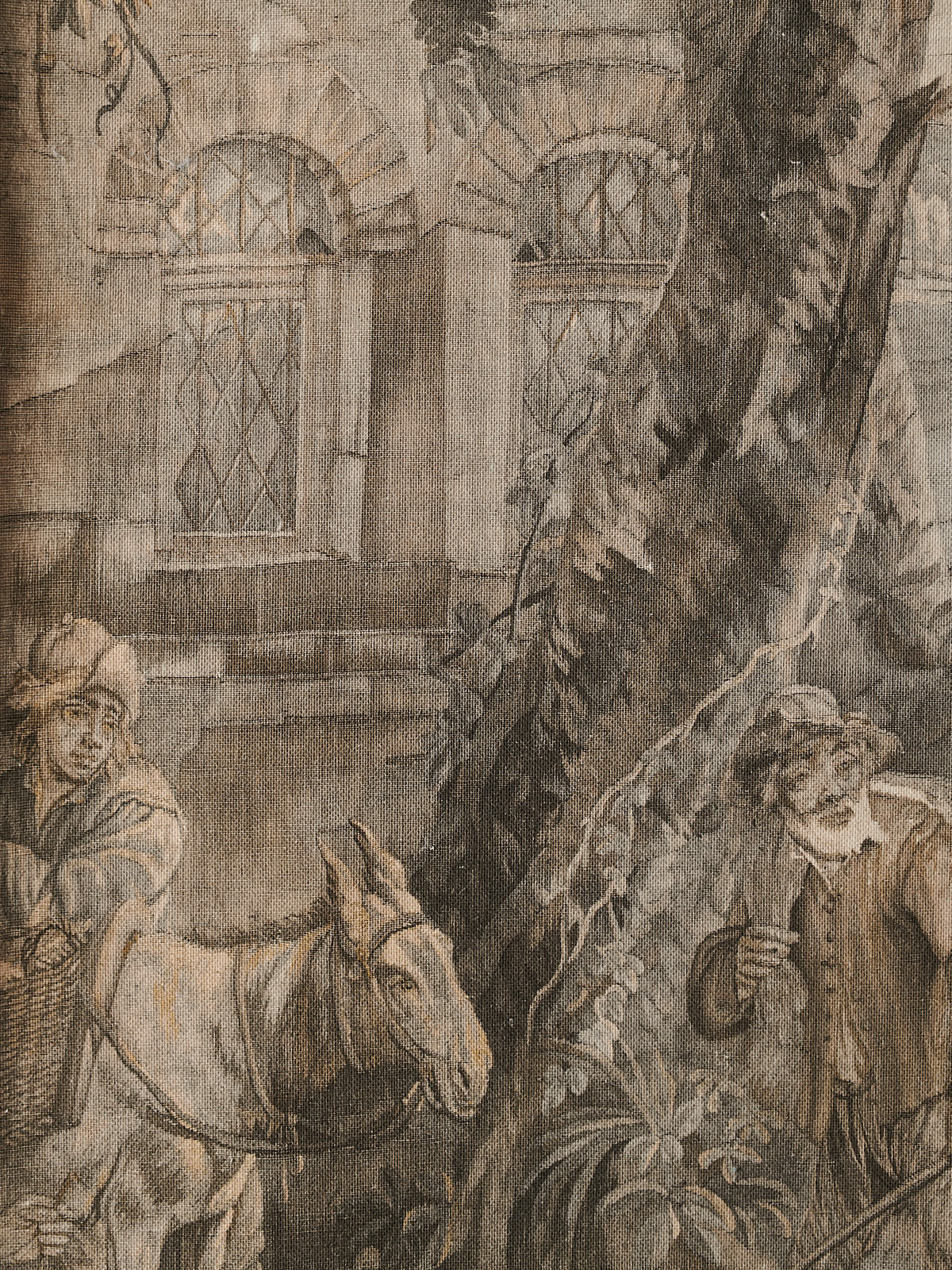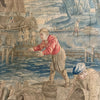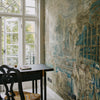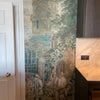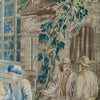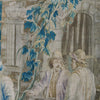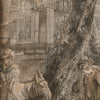Teniers Wallpaper
Provenance: Early-18th Century, a suite of three Brussels Teniers tapestries, Private Collection of Wolterton Hall
Named after the renowned Flemish Baroque painter, David Teniers II (1610-1690), Teniers Tapestries illustrate rustic and celebratory scenes from peasant life. An extremely versatile artist, Teniers is most celebrated for his peasant scenes, though his prolific output also spans history painting, genre painting, landscape painting, portrait and still life. Teniers tapestries were extremely popular in the late 17th and early 18th centuries, with workshops producing large numbers of weavings. Produced throughout Europe, they include designs depicting fisherman, shepherds, archers, farmyards and the Kermesse (al fresco party scenes), the latter of which were by far the most popular. This charismatic bucolic suite, attributed to Flemish weaver Josse de Vos (1661-1734), is typical to the genre, depicting fishermen hard at work, sportsmen revelling jovially outside a tavern and a bustling town square.

